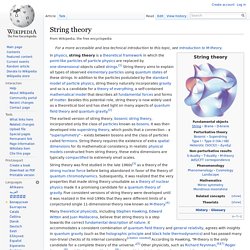

The Globalization of Hollow Politics. By Chris Hedges I went to Lille in northern France a few days before the first round of the French presidential election to attend a rally held by the socialist candidate Francois Hollande.

It was a depressing experience. Thunderous music pulsated through the ugly and poorly heated Zenith convention hall a few blocks from the city center. The rhetoric was as empty and cliché-driven as an American campaign event. Words like “destiny,” “progress” and “change” were thrown about by Hollande, who looks like an accountant and made oratorical flourishes and frenetic arm gestures that seemed calculated to evoke the last socialist French president, Francois Mitterrand. The emptying of content in political discourse in an age as precarious and volatile as ours will have very dangerous consequences. The signs of this mounting polarization were apparent in incomplete returns Sunday with the far-right National Front, led by Marine Le Pen, winning a staggering vote of roughly 20 percent. Is There a Future for Socialism? They say history repeats itselfBut history is only his storyYou haven’t heard my storyMy story is different than his storyMy story is a mysteryMy story is not a part of history— Sun Ra We all wondered, as we watched Back to the Future, how alternative futures could change the whole universe while Marty McFly stayed the same.

Those movies amounted to a Reaganite philosophy of history: the short-circuit between the Fifties and the Eighties which converts every contingent encounter into one reactionary loop, centered on the white man who secretly invents rock n’ roll, seduces his mother, and conquers the space-time continuum. Against this philosophy, we say there’s no point in historical counterfactuals. String theory. String theory was first studied in the late 1960s[3] as a theory of the strong nuclear force before being abandoned in favor of the theory of quantum chromodynamics.

Subsequently, it was realized that the very properties that made string theory unsuitable as a theory of nuclear physics made it a promising candidate for a quantum theory of gravity. Five consistent versions of string theory were developed until it was realized in the mid-1990s that they were different limits of a conjectured single 11-dimensional theory now known as M-theory.[4] Many theoretical physicists, including Stephen Hawking, Edward Witten and Juan Maldacena, believe that string theory is a step towards the correct fundamental description of nature: it accommodates a consistent combination of quantum field theory and general relativity, agrees with insights in quantum gravity (such as the holographic principle and black hole thermodynamics) and has passed many non-trivial checks of its internal consistency.
The Dot and the Line: A Romance in Lower Mathematics. The TV Of Tomorrow 1953. Car of tomorrow. "I'm Dreaming of a Blue Sunset. Most Likely Ways of Dying. The leading causes of death are combined with the person's odds of dying from a particular cause to determine which the various ways a person is likely to die in his or her lifetime.

This type of information is helpful in modifying lifestyle behaviors minimize various accidental causes of death. The data for the most likely ways of dying is based on the National Safety Council's Odds of Dying statistics. Image. Car Crash. Royalty Free Use. 2. Lifetime Odds: 1 in 7 3. Lifetime Odds: 1 in 24 4. Lifetime Odds: 1 in 84 5. Lifetime Odds: 1 in 119 6. Lifetime Odds: 1 in 218 7. Lifetime Odds: 1 in 314 8. Lifetime Odds: 1 in 626 9.
Lifetime Odds: 1 in 1,008 10. Lifetime Odds: 1 in 1,020 Notes on Odds Statistics: From the National Safety Council The odds are statistical averages taken from the whole U.S. population. Any individual's odds of dying from various external causes are affected by the activities in which they participate, where they live and drive, what kind of work they do, and other factors.
How to Make It in the Art World. The Stalking of Korean Hip Hop Superstar Daniel Lee. Daniel Lee, whose nom de rap is Tablo, is the frontman of the successful Korean trio Epik High.Photo: Miko Lim It was Friday night, May 22, 2009, and one of New York City’s most storied music venues, the Fillmore at Irving Plaza, was sold out.

The line stretched all the way down Irving Place, turned the corner onto East 16th, and kept going. People had come from as far away as Michigan, Toronto, and Ohio, but they weren’t lined up for the latest indie darlings or house music sensation. They’d come to see an improbably successful Korean trio named Epik High, which as far as anyone could tell was the first Korean hip hop act to attract a mainstream American audience. The group was headed by a skinny 28-year-old named Dan Lee, and when he danced onto the stage that night the audience started dancing with him. Now the group was building a fan base in the States. By that summer, Lee’s alleged fraud had become one of Korea’s top news items.